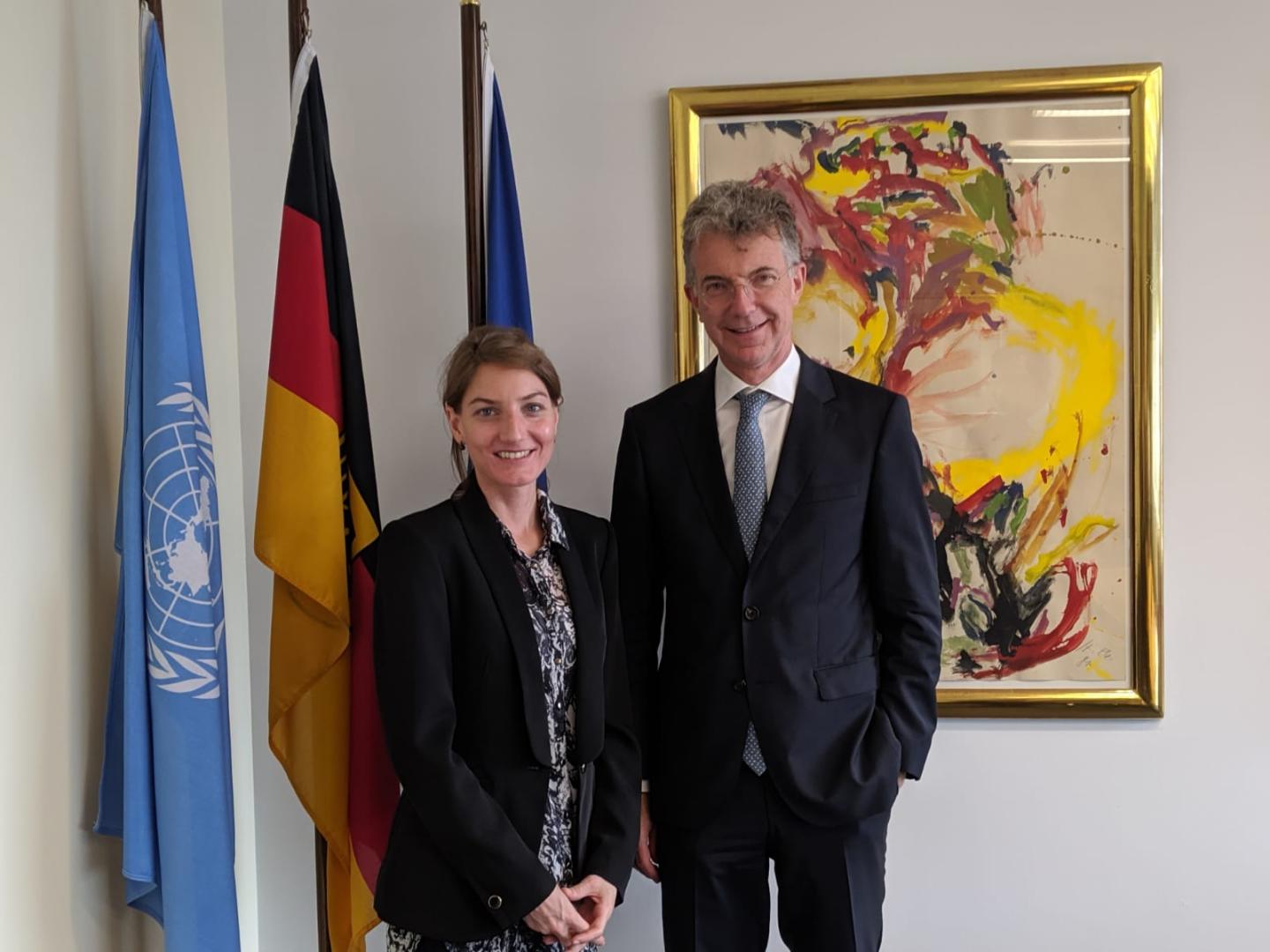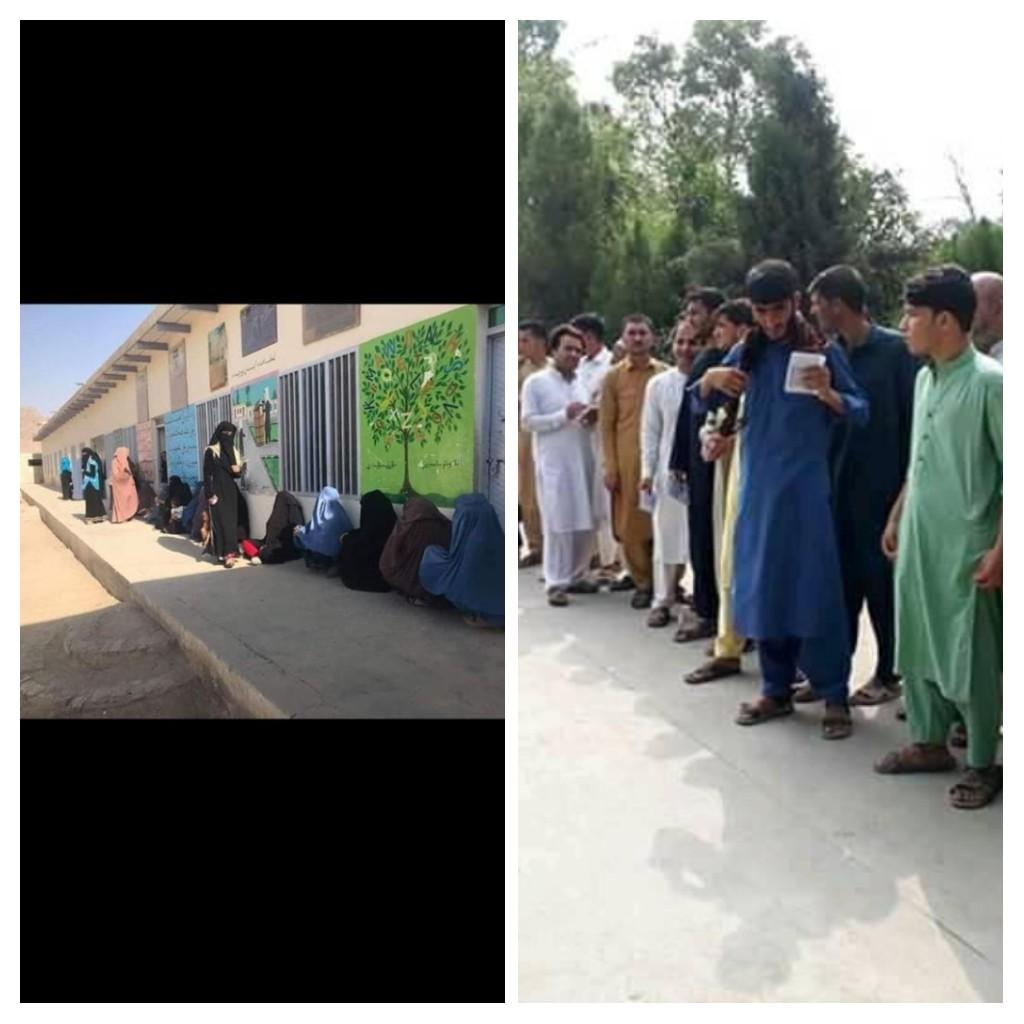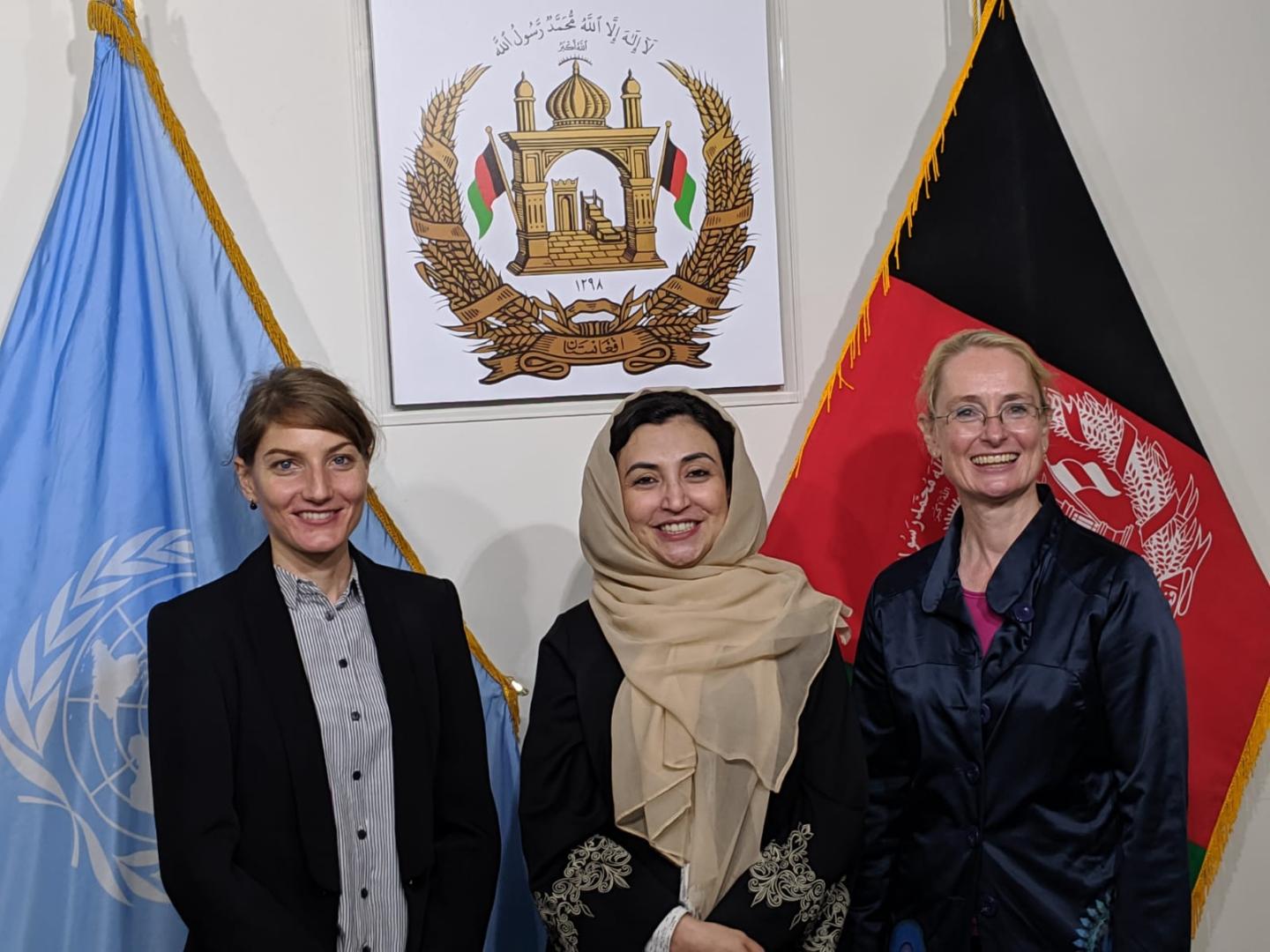Security Council Resolution 2489 (2019) was highly anticipated not only due to the ongoing talks at the time between the US and the Taliban or the upcoming presidential election, but also due to the fact that members of the SC could only agree on a technical roll-over for six months when the Resolution was up for renewal last in March.
Finally, and after long and cumbersome negotiations, the co-penholders Germany and Indonesiamanaged to streamline the previously 14-page resolution and to include within the core mandate provisions for human rights, especially regarding protection of women and children and victims of sexual violence, and welcome efforts for an inclusive peace process - one that is Afghan-led, Afghan-owned, and shows support for the Afghan government. To succeed in overcoming the stalemate between the US and China in the mandate negotiations, certainly underlines the diplomatic skills of German diplomacy.
When Afghans went to the polls on Saturday, 28th, the political landscape already was a different one from the one during the visit of Dr. Zeino. After months of tedious negotiations by his chief negotiator, Zalmay Khalilzad, with the Taliban, President Trump called off the negotiations which in any case were more dedicated towards the withdrawal of American troops and the fight against terrorism than aiming for a real peace process.
Nevertheless, and despite of a new round of violent attacks and bombings by the Taliban, the electoral process continued and Afghan politicians were campaigning in a serious effort to garner votes. However, only 14 out of 34 provinces were able to cast their vote. Albeit it is worth noting, that in these parts, voter registration is up, compared to the last Presidential elections, especially for women. However, considering the limited territorial scope and low voter turn-out the legitimacy of such an election remains on the table.
Delaying the elections again would have brought a new set of difficulties as the next earliest date would then have been in Spring 2020. President Khani’s initial mandate was set to expire in May 2019, the Supreme Court however, extended it until the delayed presidential election now took place in September. By delaying the election again, instances of civil unrest would have been likely and the calls for a Jirga would become too loud to ignore. A Jirga is a traditional assembly of male leaders in which decisions are made by consensus – a tried and tested, yet undemocratic and exclusive, way of decision-making.
Even though voter registration had increased, the historically low voter turn-out for the election was not unexpected. In the lead-up to the elections, blood-shed increased as the Taliban attacked election rallies - dozens of casualties were reported on Election Day. Furthermore, fear of reprisals for voting is high, especially in Taliban-controlled areas, particularly since Afghan ID cards are permanently stamped to confirm that the person has voted. With the Taliban’s rejection of the elections, many people were worried to take part.
Where does that leave the intra-Afghan peace talks?
After Germany hosted the first round of talks earlier this year, Norway has offered to host the next round in Oslo. However, with the Taliban’s rejection of the election and the last government, how could a power-sharing deal still be achieved?
What is often overlooked, but is of utmost importance, is that the Taliban are not a homogeneous group. One big divide is age. It is the elder generation of Taliban who are sitting at the negotiation table. Often they have been raised in Pakistani madrassas, where their families still live. After 18 years of fighting, many are ready to re-unite with their families and forego fighting. On the other hand, there are also the Taliban’s who joined in the 1990s, when they were in government. At a time when ideology might not have been as important as economic possibilities. Parts of these younger members however, are more independent and critical of Pakistan and are still more eager to fight.
The possibility that the Taliban will splinter due to a peace agreement with the Afghan government is high and there is the valid fear that the ideologically committed members will shift their allegiance to the Islamic State Khorasan (IS-K), the Islamic State in Afghanistan, or any of the other of the roughly 20 terrorist groups in Afghanistan (https://ctc.usma.edu/app/uploads/2017/02/CTC-Sentinel_Vol10Iss227.pdf). To curtail this number, economic incentives after a peace deal need to be offered to members of the Taliban.
An open but key question remains how the governing system would look like? Would the country be split, with the Taliban ruling the provinces already under their control, and the Afghan government controlling the rest of the country? Would it be a return to the 1990s Sharia law and Hudud penal code in the Taliban controlled areas? How would the international community react this time if schools are closed, and women’s rights along with all other achievements established in the last 18 years are disregarded?
Or will it be possible to incorporate some of the Taliban’s system into current Afghanistan? A young, bright Afghanistan where man and woman look west and strive to better their lives, as Ambassador Raz described it.
Economic opportunities, DDR, protection of institutions and rights, a consensus Head of (interim) Government, security on the streets, mediation programs, establishing one governing system for the whole country – the needs coming with a peace deal seem to be endless, yet their importance varies widely across different people and groups. Everyone agreed, however, that should President Trump follow-through with his announcement that the US will withdraw its troops from Afghanistan, it has to be done in an orderly fashion. The vacuum left through a hasty withdrawal would most likely lead to another civil war.
Finally, and after long and cumbersome negotiations, the co-penholders Germany and Indonesiamanaged to streamline the previously 14-page resolution and to include within the core mandate provisions for human rights, especially regarding protection of women and children and victims of sexual violence, and welcome efforts for an inclusive peace process - one that is Afghan-led, Afghan-owned, and shows support for the Afghan government. To succeed in overcoming the stalemate between the US and China in the mandate negotiations, certainly underlines the diplomatic skills of German diplomacy.
When Afghans went to the polls on Saturday, 28th, the political landscape already was a different one from the one during the visit of Dr. Zeino. After months of tedious negotiations by his chief negotiator, Zalmay Khalilzad, with the Taliban, President Trump called off the negotiations which in any case were more dedicated towards the withdrawal of American troops and the fight against terrorism than aiming for a real peace process.
Nevertheless, and despite of a new round of violent attacks and bombings by the Taliban, the electoral process continued and Afghan politicians were campaigning in a serious effort to garner votes. However, only 14 out of 34 provinces were able to cast their vote. Albeit it is worth noting, that in these parts, voter registration is up, compared to the last Presidential elections, especially for women. However, considering the limited territorial scope and low voter turn-out the legitimacy of such an election remains on the table.
Delaying the elections again would have brought a new set of difficulties as the next earliest date would then have been in Spring 2020. President Khani’s initial mandate was set to expire in May 2019, the Supreme Court however, extended it until the delayed presidential election now took place in September. By delaying the election again, instances of civil unrest would have been likely and the calls for a Jirga would become too loud to ignore. A Jirga is a traditional assembly of male leaders in which decisions are made by consensus – a tried and tested, yet undemocratic and exclusive, way of decision-making.
Even though voter registration had increased, the historically low voter turn-out for the election was not unexpected. In the lead-up to the elections, blood-shed increased as the Taliban attacked election rallies - dozens of casualties were reported on Election Day. Furthermore, fear of reprisals for voting is high, especially in Taliban-controlled areas, particularly since Afghan ID cards are permanently stamped to confirm that the person has voted. With the Taliban’s rejection of the elections, many people were worried to take part.
Where does that leave the intra-Afghan peace talks?
After Germany hosted the first round of talks earlier this year, Norway has offered to host the next round in Oslo. However, with the Taliban’s rejection of the election and the last government, how could a power-sharing deal still be achieved?
What is often overlooked, but is of utmost importance, is that the Taliban are not a homogeneous group. One big divide is age. It is the elder generation of Taliban who are sitting at the negotiation table. Often they have been raised in Pakistani madrassas, where their families still live. After 18 years of fighting, many are ready to re-unite with their families and forego fighting. On the other hand, there are also the Taliban’s who joined in the 1990s, when they were in government. At a time when ideology might not have been as important as economic possibilities. Parts of these younger members however, are more independent and critical of Pakistan and are still more eager to fight.
The possibility that the Taliban will splinter due to a peace agreement with the Afghan government is high and there is the valid fear that the ideologically committed members will shift their allegiance to the Islamic State Khorasan (IS-K), the Islamic State in Afghanistan, or any of the other of the roughly 20 terrorist groups in Afghanistan (https://ctc.usma.edu/app/uploads/2017/02/CTC-Sentinel_Vol10Iss227.pdf). To curtail this number, economic incentives after a peace deal need to be offered to members of the Taliban.
An open but key question remains how the governing system would look like? Would the country be split, with the Taliban ruling the provinces already under their control, and the Afghan government controlling the rest of the country? Would it be a return to the 1990s Sharia law and Hudud penal code in the Taliban controlled areas? How would the international community react this time if schools are closed, and women’s rights along with all other achievements established in the last 18 years are disregarded?
Or will it be possible to incorporate some of the Taliban’s system into current Afghanistan? A young, bright Afghanistan where man and woman look west and strive to better their lives, as Ambassador Raz described it.
Economic opportunities, DDR, protection of institutions and rights, a consensus Head of (interim) Government, security on the streets, mediation programs, establishing one governing system for the whole country – the needs coming with a peace deal seem to be endless, yet their importance varies widely across different people and groups. Everyone agreed, however, that should President Trump follow-through with his announcement that the US will withdraw its troops from Afghanistan, it has to be done in an orderly fashion. The vacuum left through a hasty withdrawal would most likely lead to another civil war.






